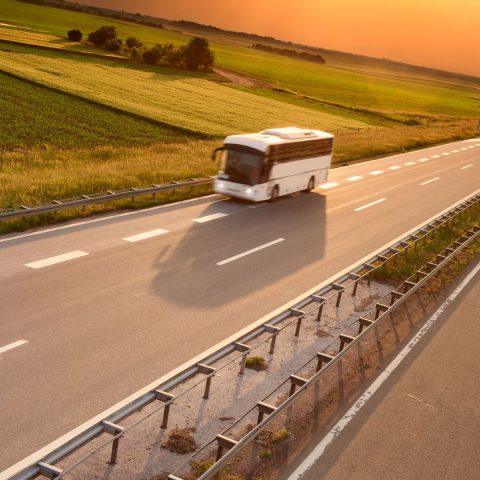“EU Parliament sets unrealistic targets for zero-emission vehicles”. IRU reaction on heavy-duty CO2 standards
IRU’s position on the vote held on 21st November at the European Parliament is clear and stark: “The European Parliament’s plenary vote on CO₂ emission targets for heavy-duty vehicles sets unrealistic targets for zero-emission vehicles, feebly tries to factor the role of carbon-neutral fuels in decarbonisation, and attempts to bring the EU transport sector in […]

IRU’s position on the vote held on 21st November at the European Parliament is clear and stark: “The European Parliament’s plenary vote on CO₂ emission targets for heavy-duty vehicles sets unrealistic targets for zero-emission vehicles, feebly tries to factor the role of carbon-neutral fuels in decarbonisation, and attempts to bring the EU transport sector in line with totalitarian regimes by mandating purchase targets for transport operators“.
IRU on CO2 limits for trucks and buses: the issue of infrastructure
IRU EU Advocacy Director Raluca Marian said, “Despite the many strong industry voices and numerous Members of the European Parliament calling for a sensible decarbonisation path, the Parliament is now officially set to enter trilogue negotiations with idealistic targets, disconnected from energy supply possibilities and business realities on the ground.”
IRU adds: “In the short and medium term, there are no signs that infrastructure for such high zero-emission vehicle targets for heavy-duty vehicles will be ready for large scale deployment in urban areas and on major EU road networks. In addition to the lack of charging stations, there is no EU-wide plan, nor any known regional plans, for the necessary electricity grid upgrades. While even the existing 2030 target of 30% is hugely challenging given the current lack of enabling conditions, the Parliament now sets the ambition at a significantly higher 45% in only six years from now”.
IRU: mandatory purchasing targets are unaccettable
IRU stresses the point that “the plenary has adopted mandatory purchasing targets for transport operators. The Parliament’s version of the law requires the Commission to present a legislative proposal to the Parliament and Council to increase the share of zero-emission heavy-duty motor vehicles owned or leased by large fleet operators”.
“What is completely unacceptable are mandatory purchasing targets. Commercial road transport operators do not carry out business based on public contracts. There must be a limit to economic interventionism that unproportionally and unnecessarily breaches the enshrined European rights to property and freedom to conduct business. We cannot accept unreasonable demands on private operators who are working with private capital and are solely responsible for managing their own operational and financial risk,” said Raluca Marian. She concluded: “We’re glad to see that, at the very least, the Parliament has confirmed the anticipation of the targets’ review clause from 2028 to 2027, as advocated for by the industry. This is our only remaining hope that EU policy will relate to the reality on the ground, hopefully well ahead of 2030 when it will be too late,” said Raluca Marian.
EU wanting to remove extra 4 tons for ZE vehicles
IRU also points out that “On a separate but strongly linked EU file, the Weights and Dimensions Directive, Member States seem to want to remove the extra four tonnes allowable for zero-emission vehicles, which was proposed by the European Commission. The extra weight allowance is needed to allow zero-emission vehicles to be able to carry as much as trucks on the roads today, maintaining the sector’s efficiency. The weight deriving from new vehicle technologies, such as batteries, substantially impacts the weight of the vehicle, requiring it to be adjusted accordingly”.
“We struggle to understand the direction in which some Member States and MEPs are going. On the one hand, they have confirmed the ambitious CO₂ emission reduction targets set out in the Commission’s proposal, while on the other, they are discouraging the uptake of zero-emission vehicles by making them commercially unviable,” warned Raluca Marian.








